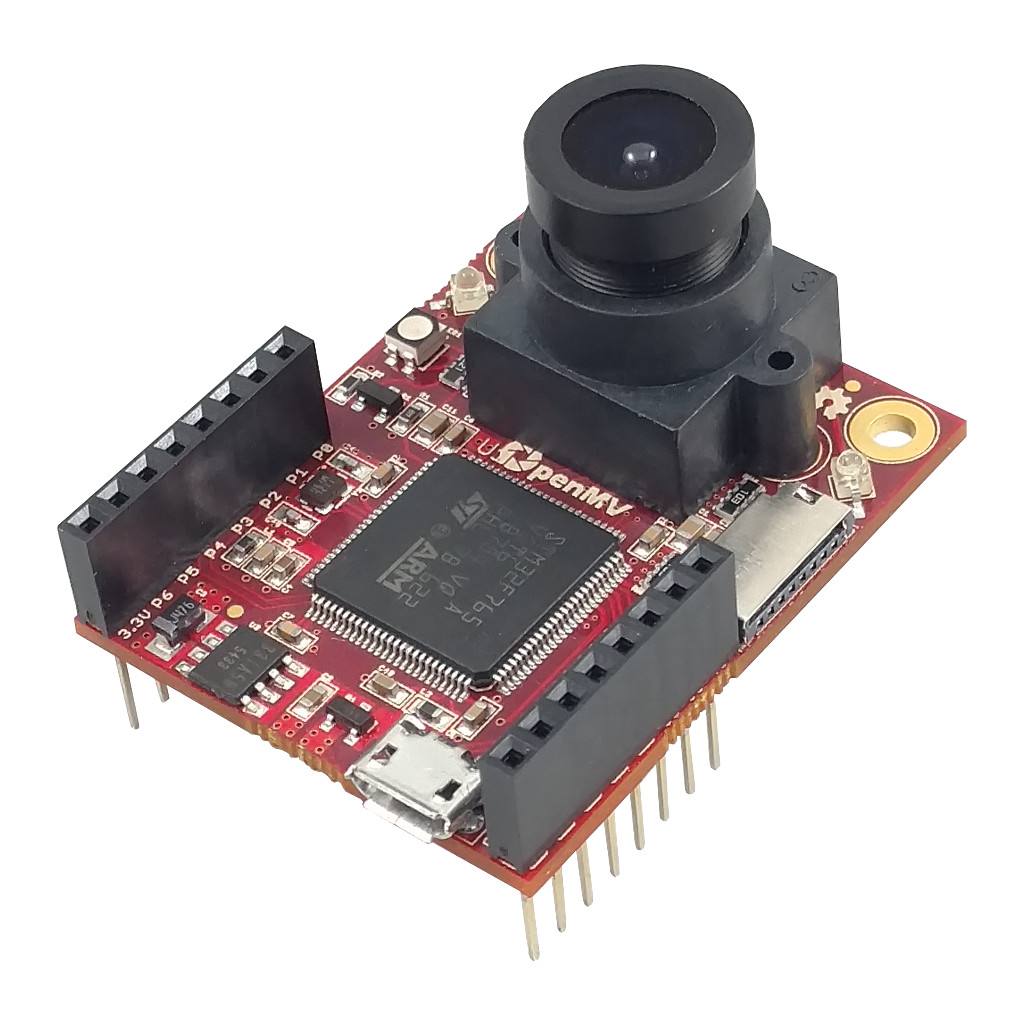With this commit fb_alloc now takes hints to better decide which ram to give (internal or sdram). Only fb_alloc_all calls are given any hints right now as some of the calls need as much ram as possible and will cause failures to happen if a small amount of fast internal sram is returned. Anyway, hints can be used to tune where things are placed by fb_alloc. |
||
|---|---|---|
| .github | ||
| ml | ||
| scripts | ||
| src | ||
| tools | ||
| udev | ||
| .gitignore | ||
| .gitmodules | ||
| .travis.yml | ||
| CHANGELOG.md | ||
| LICENSE | ||
| README.md | ||
OpenMV (Open-Source Machine Vision)

The OpenMV project aims at making machine vision more accessible to beginners by developing a user-friendly, open-source, low-cost machine vision platform.
OpenMV cameras are programmable in Python3 and come with an extensive set of image processing functions such as face detection, keypoints descriptors, color tracking, QR and Bar codes decoding, AprilTags, GIF and MJPEG recording and more. Additionally, OpenMV includes a cross-platform IDE (based on Qt Creator) designed specifically to support programmable cameras. The IDE allows viewing the camera's frame buffer, accessing sensor controls, uploading scripts to the camera via serial over USB (or WiFi/BLE if available) and includes a set of image processing tools to generate tags, thresholds, keypoints etc...
The first generation of OpenMV cameras is based on STM32F ARM Cortex-M Digital Signal Controllers (DSCs) and Omnivision sensors. The board has built-in RGB and IR LEDs, USB FS for programming and video streaming, uSD socket and I/O headers breaking out PWM, UARTs, SPI and I2C. Additionally, OpenMV supports extension modules (shields) using the I/O headers such as WiFi, BLE, Thermal (FIR) and LCD shields.
The OpenMV project was successfully funded via Kickstarter back in 2015 and has come a long way since then. For more information, please visit https://openmv.io